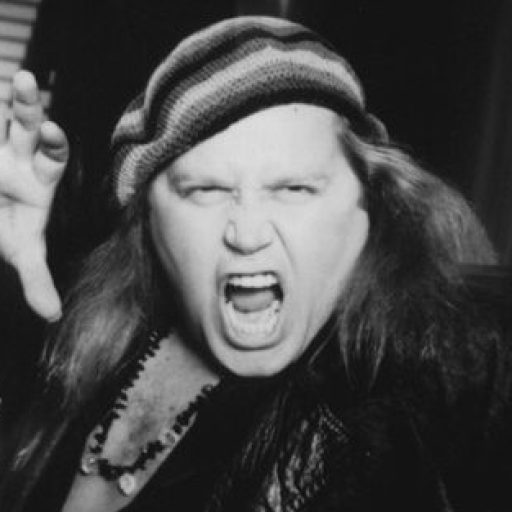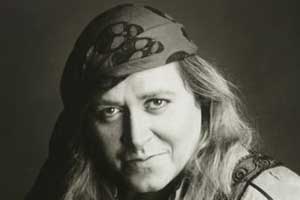By Mark Chalon Smith
Originally printed in The Los Angeles Times
Wednesday, April 25, 1990
NEWPORT BEACH — Sam Kinison has long been assailed for his unyieldingly provocative material. Homosexuals say he’s anti-gay, women say he’s anti-female, some people say he’s anti-human. Lots of people just say he’s crude, rude and lewd.
His detractors wouldn’t have been disappointed with his show at the Laff Stop Monday night. There was plenty of the stuff that gets him in trouble, and the close-up nature of the 280-seat club (Kinison usually plays to rock concert-size crowds) put his defiantly caustic side right in your face.
But Kinison wasn’t all bite and bash at everybody else’s expense. You couldn’t call his 50-minute set charitable, by any means (for one thing, tickets were a stiff $25 a pop). But by Kinison standards, it was almost humane. He didn’t even scream that much.
Dig this. Kinison at one point suggested that men be more tolerant of women and their distaste for certain sex acts (say what?). He also made something of an environmentalist’s plea for the dolphins (they should have an 800 telephone number, he said, to call for advice on how to avoid tuna), and he blasted drug-taking several times.
Then he drew in on the Orange County angle with a bit about Walt Disney that began affectionately and touched on the values of “family entertainment.”
Too much for you to assimilate? Actually, Kinison went on to describe himself as “family entertainment” (come again?) and ultimately confessed that he thinks Walt was a pretty weird dude. Any guy who made “Old Yeller” (“a very sick movie about a dog who has to be shot”) couldn’t be all good, Kinison opined.
Some of his most accessible riffs had an impromptu edge. He dwelled on the National Enquirer and its many stories about his escapades. His favorite was the one linking him romantically with Lenny Bruce’s 83-year-old mother. Forget the print media, though. What really unnerves him is television, especially shopping channels and the new phenomenon of 30-minute commercials masquerading as news programs, usually hosted by “burnt-out actors like Robert Vaughn and John Davidson.” He used that as a springboard to condemn the invidious nature of TV, a recurring theme of the evening.
As usual, though, gays had to endure the majority of his abuse, all of it unprintable. It’s this particular obsession of Kinison’s that has created his biggest problem: It raises the question of his comedy’s validity, certainly when it relates to sensitive issues, not just affecting gays but all groups of people.
The thinking man’s defense of shock comedy, of course, is that by striking a subject with brutal humor, we remove the barriers of propriety and politeness that separate us from it. Once the topic is pounded home, there’s no avoiding it: The shock we’ll experience will be that of self-recognition.
It’s hard to tell if that’s Kinison’s intent, or even if that’s what he accomplishes. What’s clear, though, is that he works up a catharsis in his fans (any guy who’s been done wrong by his girlfriend, for example, certainly can identify with Kinison’s rants).
Does the linkage reinforce or defuse the negative feelings? That’s the conundrum of Sam Kinison.

